- 17 Oct 2021
- 3 Minuten zu lesen
- Drucken
- DunkelLicht
- pdf
Service Account Setup
- Aktualisiert am 17 Oct 2021
- 3 Minuten zu lesen
- Drucken
- DunkelLicht
- pdf
A service account is required to allow your Salesforce organization to communicate with ScreenMeet's servers. This guide will outline how to set up your service account.
Create a new User
First you will need to create a new user in your organization that is dedicated to the service account. We recommend minimizing access for this user as a security best practice.
Please follow this how-to guide to set up a new user.
Enable Edit Created By System Permission
In some cases, ScreenMeet sessions will be created on behalf of other users by the service account. By default, the Created By field will be populated as the Service Account. If you would like the Created By field to reflect the user who requested the session, we recommend following the steps in this section. Set Audit Fields upon Record Creation permission.
- Sign in as a System Administrator, then go to Setup.
- Search for "User Interface" in Quick Find..
- Click on "User Interface" from the search results (it will be located at the bottom of the list):
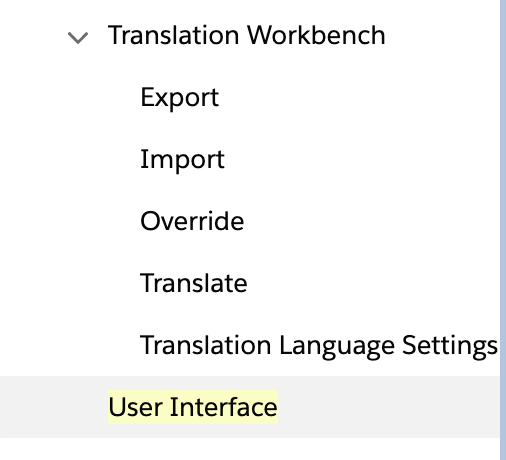
- In the Setup section, enable the option called Enable "Set Audit Fields upon Record Creation" and "Update Records with Inactive Owners" User Permissions.

- Click Save
Create the ScreenMeet Service Permission Set
- Go to Setup in your salesforce organization.
- Type "permission sets" in the Quick Find, then click on Permission Sets.
- Find the ScreenMeet Admin permission set, which you set up earlier in the list, then click on clone.
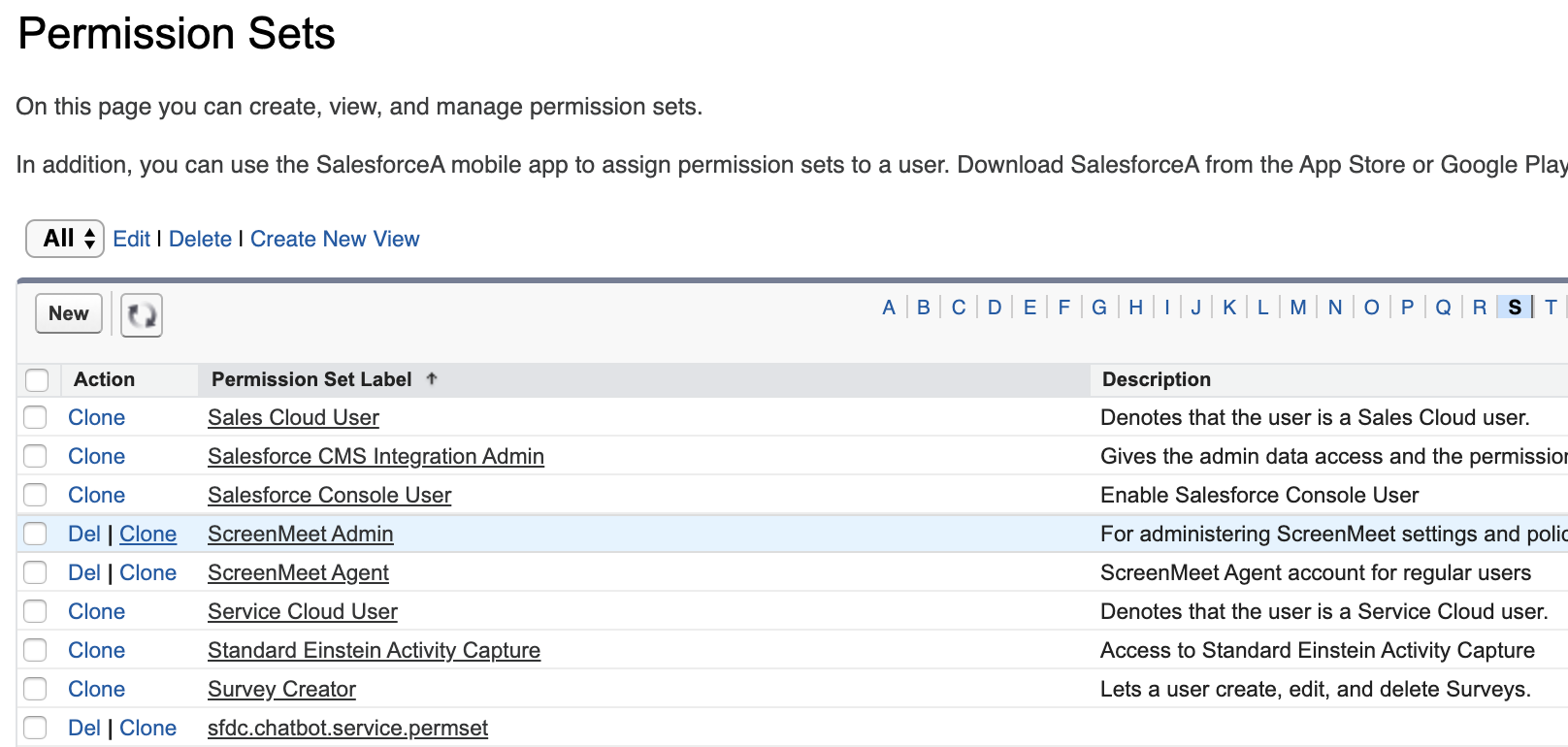
- Enter ScreenMeet Service for the Label and ScreenMeet_Service for the API Name, then click Save.
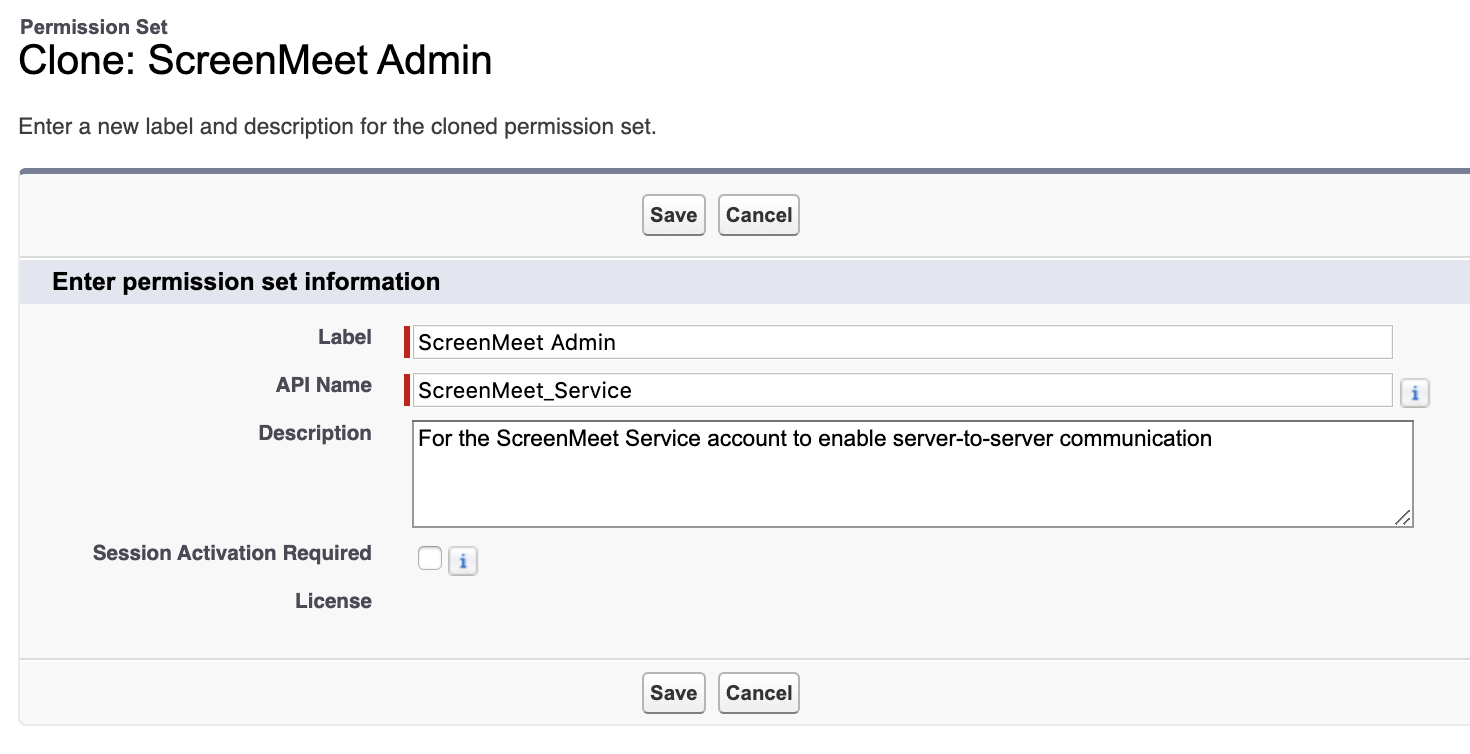
Enable Object Setting Write Permissions
ScreenMeet Live Sessions Object
| .png) |
Live Session Log Messages Object
|  |
Live Session Device Attributes Object
| 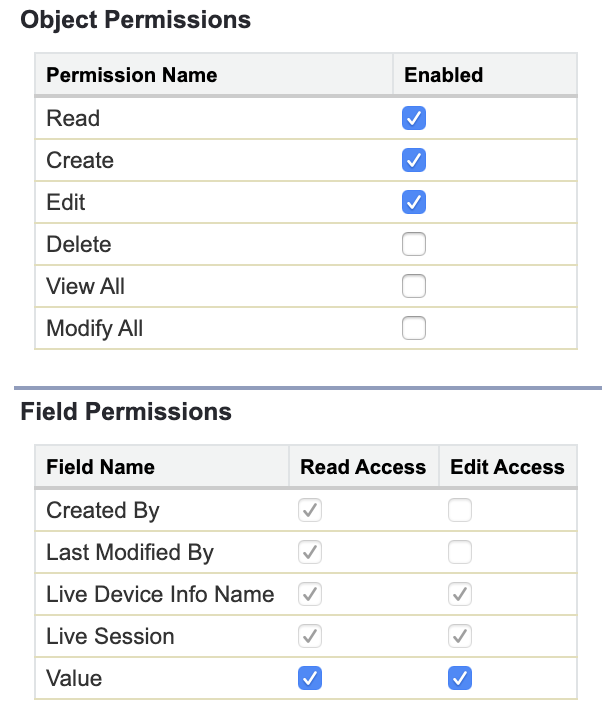 |
Enable Set Audit Field System Permission
- From the ScreenMeet Service Permission Set Overview, open System Permissions.
- Click on Edit.
- Find theSet Audit Fields upon Record Creation permission and enable it.
.png)
- Click Save.
- Click Save on the confirmation dialog.
- Click on Manage Assignments for the service account permission set.
- Assign it to the ScreenMeet Service user you created in the previous step.
Set Service Account User Password Policy to Never Expire
Salesforce enforces regular password changes for standard users. You will want to avoid this for the service account so that you don't experience a service interruption when the password expires.
- Create a "ScreenMeet Service" profile by clone an existing profile for a user with minimal privileges.
- Click on Password Policies from the System section of the profile summary view for ScreenMeet Service.
- Click Edit.
- Choose Never for User password expires in setting.
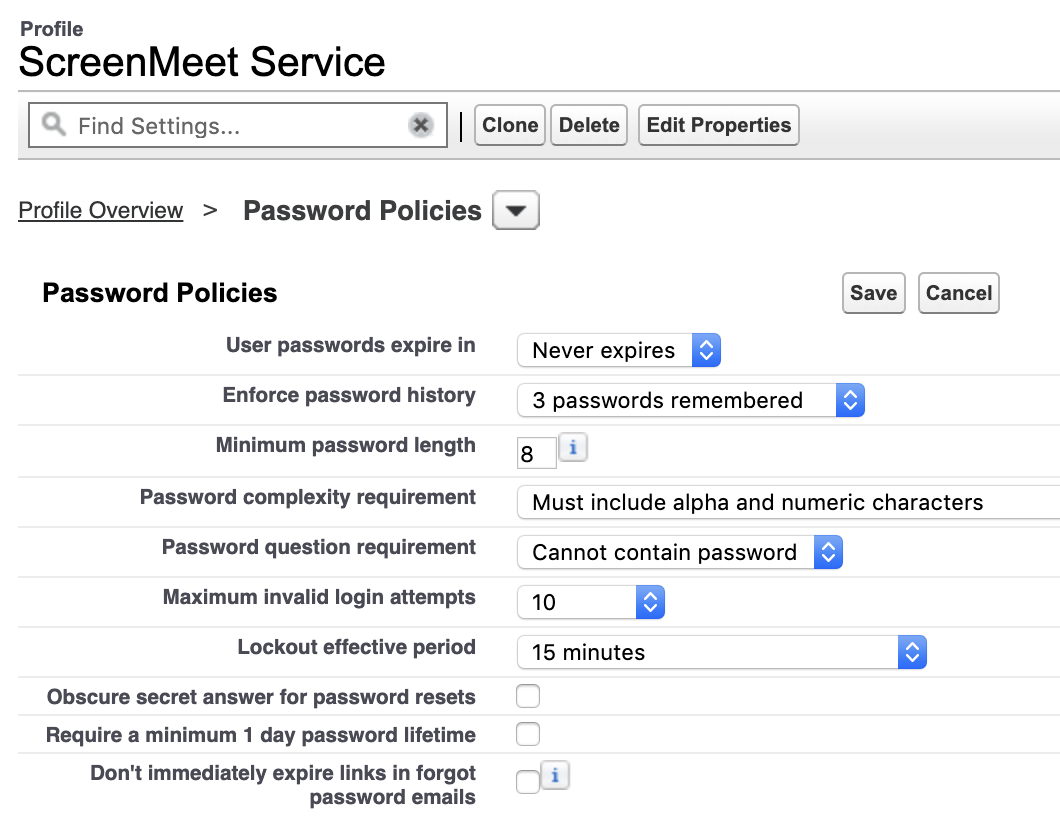
- Click Save.
Create Security Token
- Sign in to your Salesforce instance as the Service Account
- Click on your avatar in the top-right and then click on settings

- Click Reset my Security Token from the menu on the left under My Personal Information.
- Click the Reset Security Token button.

- An email will be sent to the address on the user account for the service account with the security token.
Enter Service Account configuration into ScreenMeet Console
- Open https://console.screenmeet.com.
- Click on "Salesforce" if using a production instance, or "Salesforce Sandbox" if using a sandbox instance.
- Sign in with either the ScreenMeet Service account credentials or an account with the ScreenMeet Admin.
- Click accept on the Permission Entitlement authentication dialog for the ScreenMeet app if it appears.
- Click the Menu icon on the top left to open the menu, then click on Organization.

- Then click on Organization -> Settings and Policies

- Click on Salesforce Integration from the menu.
Enter your service account username, security token, and password into the corresponding fields, then click Save Configuration.
NOTE: If you enabled Set Audit Fields upon Record Creation at the beginning of this section, be sure to enable Override CreatedById (Require Permission).
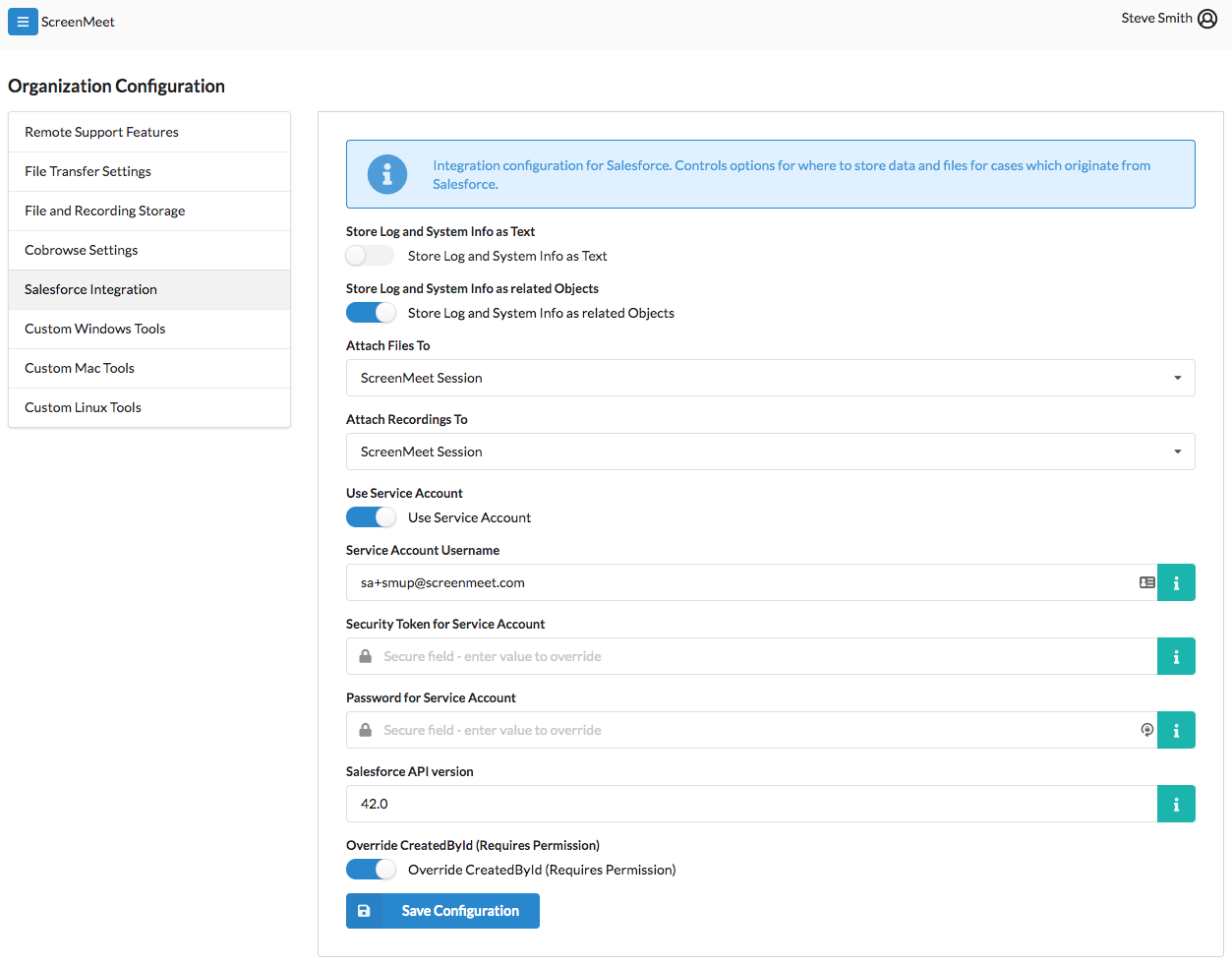
.png)



